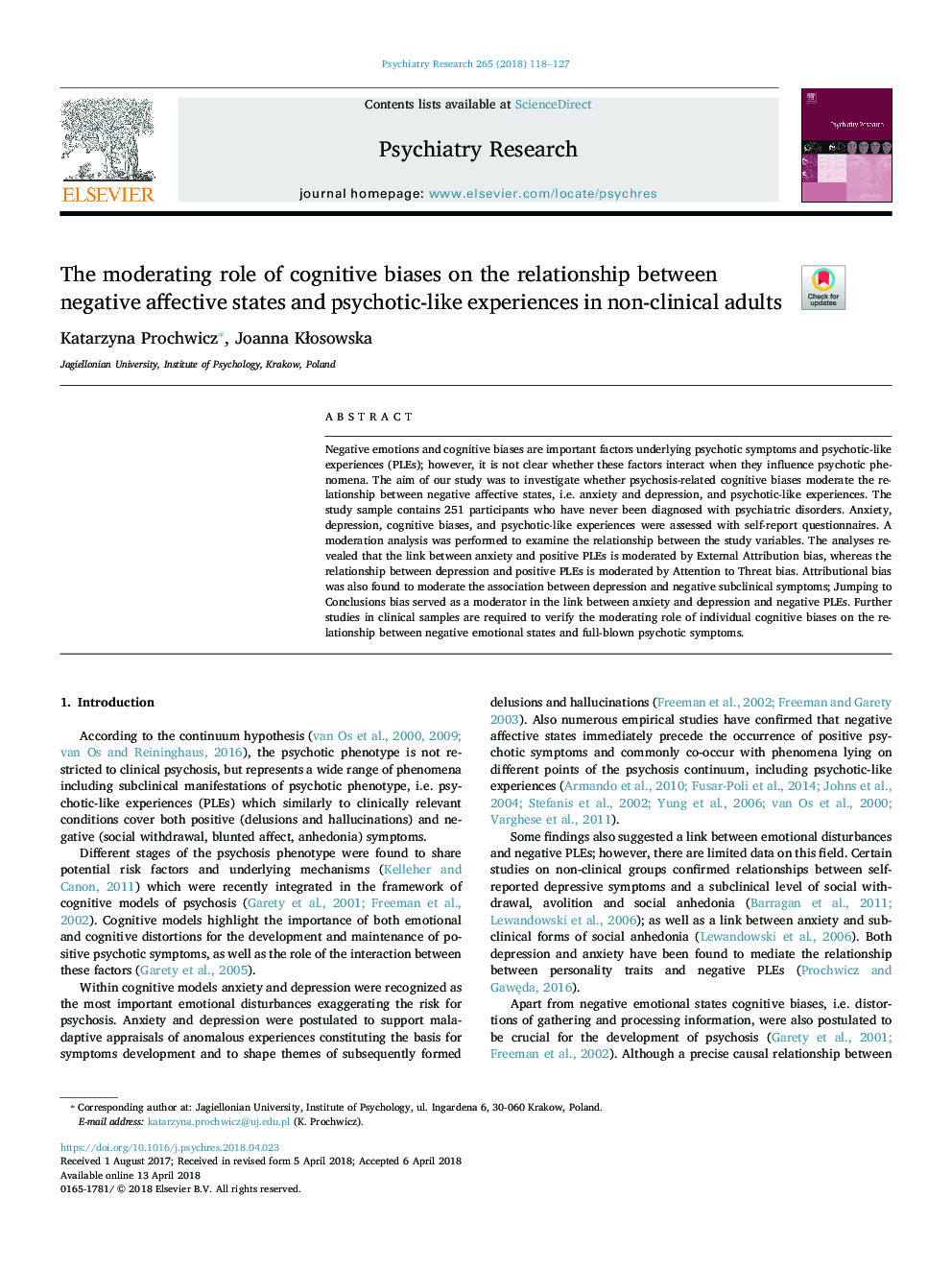| کد مقاله | کد نشریه | سال انتشار | مقاله انگلیسی | نسخه تمام متن |
|---|---|---|---|---|
| 6811402 | 1433781 | 2018 | 10 صفحه PDF | دانلود رایگان |
عنوان انگلیسی مقاله ISI
The moderating role of cognitive biases on the relationship between negative affective states and psychotic-like experiences in non-clinical adults
ترجمه فارسی عنوان
نقش تعدیل کننده تعصب شناختی بر رابطه بین وضعیت عاطفی منفی و تجربیات روانی مانند در بزرگسالان غیر بالینی
دانلود مقاله + سفارش ترجمه
دانلود مقاله ISI انگلیسی
رایگان برای ایرانیان
موضوعات مرتبط
علوم زیستی و بیوفناوری
علم عصب شناسی
روانپزشکی بیولوژیکی
چکیده انگلیسی
Negative emotions and cognitive biases are important factors underlying psychotic symptoms and psychotic-like experiences (PLEs); however, it is not clear whether these factors interact when they influence psychotic phenomena. The aim of our study was to investigate whether psychosis-related cognitive biases moderate the relationship between negative affective states, i.e. anxiety and depression, and psychotic-like experiences. The study sample contains 251 participants who have never been diagnosed with psychiatric disorders. Anxiety, depression, cognitive biases, and psychotic-like experiences were assessed with self-report questionnaires. A moderation analysis was performed to examine the relationship between the study variables. The analyses revealed that the link between anxiety and positive PLEs is moderated by External Attribution bias, whereas the relationship between depression and positive PLEs is moderated by Attention to Threat bias. Attributional bias was also found to moderate the association between depression and negative subclinical symptoms; Jumping to Conclusions bias served as a moderator in the link between anxiety and depression and negative PLEs. Further studies in clinical samples are required to verify the moderating role of individual cognitive biases on the relationship between negative emotional states and full-blown psychotic symptoms.
ناشر
Database: Elsevier - ScienceDirect (ساینس دایرکت)
Journal: Psychiatry Research - Volume 265, July 2018, Pages 118-127
Journal: Psychiatry Research - Volume 265, July 2018, Pages 118-127
نویسندگان
Katarzyna Prochwicz, Joanna KÅosowska,
